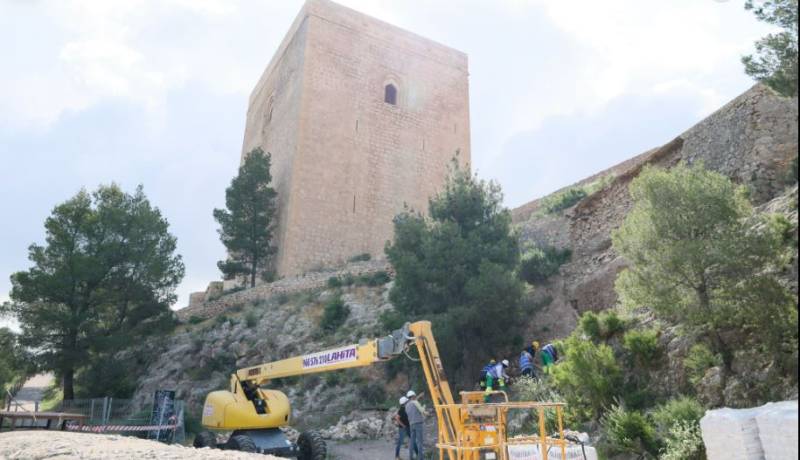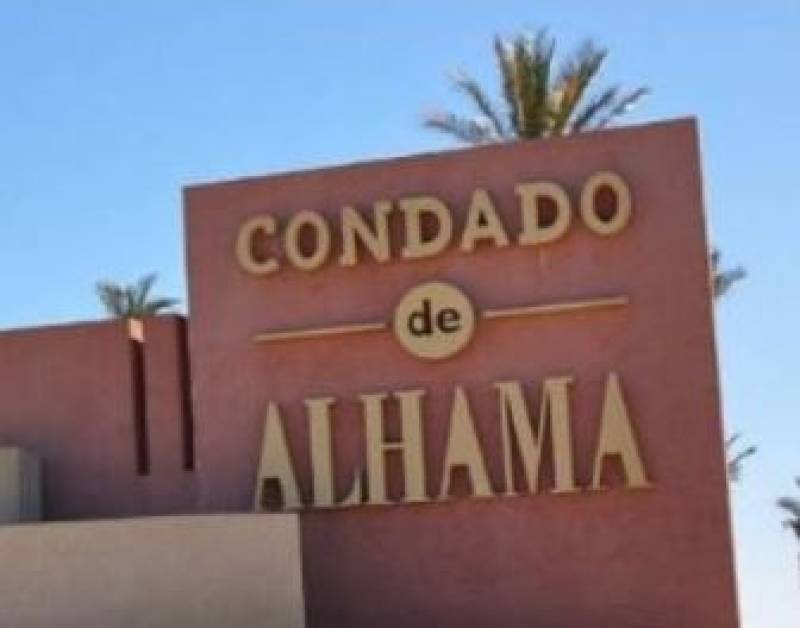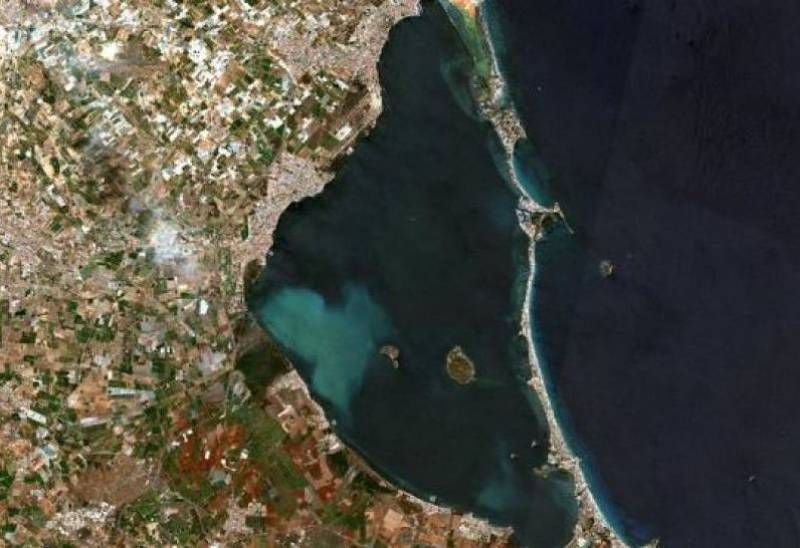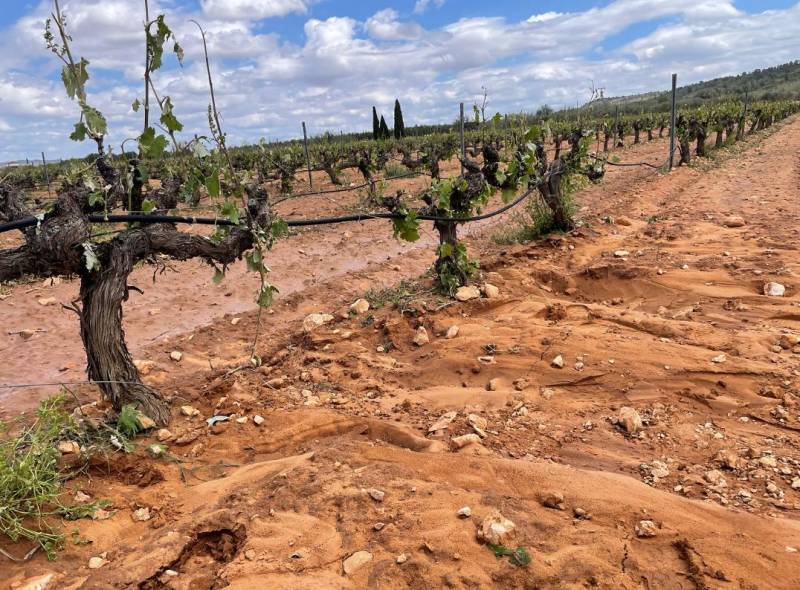- Region
- Águilas
- Alhama de Murcia
- Jumilla
- Lorca
- Los Alcázares
- Mazarrón
- San Javier
-
ALL AREAS & TOWNS
- AREAS
- SOUTH WEST
- MAR MENOR
- MURCIA CITY & CENTRAL
- NORTH & NORTH WEST
- TOWNS
- Abanilla
- Abarán
- Aguilas
- Alamillo
- Alcantarilla
- Aledo
- Alhama de Murcia
- Archena
- Balsicas
- Blanca
- Bolnuevo
- Bullas
- Cañadas del Romero
- Cabo de Palos
- Calasparra
- Camping Bolnuevo
- Campo De Ricote
- Camposol
- Canada De La Lena
- Caravaca de la Cruz
- Cartagena
- Cehegin
- Ceuti
- Cieza
- Condado de Alhama
- Corvera
- Costa Cálida
- Cuevas De Almanzora
- Cuevas de Reyllo
- El Carmoli
- El Mojon
- El Molino (Puerto Lumbreras)
- El Pareton / Cantareros
- El Raso
- El Valle Golf Resort
- Fortuna
- Fuente Alamo
- Hacienda del Alamo Golf Resort
- Hacienda Riquelme Golf Resort
- Isla Plana
- Islas Menores & Mar de Cristal
- Jumilla
- La Azohia
- La Charca
- La Manga Club
- La Manga del Mar Menor
- La Pinilla
- La Puebla
- La Torre
- La Torre Golf Resort
- La Unión
- Las Palas
- Las Ramblas
- Las Ramblas Golf
- Las Torres de Cotillas
- Leiva
- Librilla
- Lo Pagan
- Lo Santiago
- Lorca
- Lorquí
- Los Alcázares
- Los Balcones
- Los Belones
- Los Canovas
- Los Nietos
- Los Perez (Tallante)
- Los Urrutias
- Los Ventorrillos
- Mar De Cristal
- Mar Menor
- Mar Menor Golf Resort
- Mazarrón
- Mazarrón Country Club
- Molina de Segura
- Moratalla
- Mula
- Murcia City
- Murcia Property
- Pareton
- Peraleja Golf Resort
- Perin
- Pilar de la Horadada
- Pinar de Campoverde
- Pinoso
- Playa Honda
- Playa Honda / Playa Paraíso
- Pliego
- Portmán
- Pozo Estrecho
- Puerto de Mazarrón
- Puerto Lumbreras
- Puntas De Calnegre
- Region of Murcia
- Ricote
- Roda Golf Resort
- Roldan
- Roldan and Lo Ferro
- San Javier
- San Pedro del Pinatar
- Santiago de la Ribera
- Sierra Espuña
- Sucina
- Tallante
- Terrazas de la Torre Golf Resort
- Torre Pacheco
- Totana
- What's On Weekly Bulletin
- Yecla


- EDITIONS:
 Spanish News Today
Spanish News Today
 Alicante Today
Alicante Today
 Andalucia Today
Andalucia Today
Date Published: 14/05/2025
Why are our tomatoes, milk and olive oil so expensive? The real story behind Spain’s food prices
From the olive oil price row to why supermarkets fight over shelf space, here’s what’s really going on in Spain’s food chain
 Although inflation in Spain has started to ease, with April showing a modest 2.2 percent increase compared to last year, questions over how our food is priced continue to bubble up. Olive oil is once again in the spotlight, with Spain’s COAG farmers' union filing a complaint on last week to the National Commission on Markets and Competition (CNMC), urging them to investigate what they claim is price manipulation at source.
Although inflation in Spain has started to ease, with April showing a modest 2.2 percent increase compared to last year, questions over how our food is priced continue to bubble up. Olive oil is once again in the spotlight, with Spain’s COAG farmers' union filing a complaint on last week to the National Commission on Markets and Competition (CNMC), urging them to investigate what they claim is price manipulation at source.They say the price of olive oil is being artificially driven up before it even hits supermarket shelves, pointing to potential “collusive practices” among producers. And it is not the first time olive oil, long seen as a symbol of Spanish identity, has caused controversy. Over the past two years, its price has risen sharply, with both shoppers and producers feeling the pressure.
So what is really happening in Spain’s food supply chain?
Experts agree that the system is generally effective at delivering a good quantity and quality of food. However, the issue lies in how profits are shared. “There are problems when it comes to distributing the benefits along the chain,” said David Uclés, a professor at the International School of Agri Management (ISAM).
According to Francesc Rufas from EAE Business School, it is often the biggest retailers who hold the most power. Prices, he explains, are set based on what customers are willing to pay at the checkout, not necessarily by how much it costs to produce the goods. “Supermarkets sell space,” he says. “They seek to maximise square footage either through turnover or margin, by using adjusted prices or lower cost structures.”
Bigger supermarket chains also skip intermediaries to save money, but they take on more risk in return. This includes the cost of transporting and handling the products, all for a narrow profit margin, usually around 2 percent. With margins so small, volume becomes everything. Manufacturers are increasingly creating exclusive products just for large retailers in order to guarantee a place on the shelf and avoid destructive price wars.
The problem is made more complicated by the diversity of the products themselves. Take tomatoes, for example. There are greenhouse varieties, spring tomatoes, winter ones, different soils and farming techniques. All of this makes it hard to standardise prices, which is why some experts argue for more transparent "reference prices" that both sellers and buyers, including consumers, can rely on.
There is also a growing trend of consolidation, both in distribution and production. Small farmers and cooperatives are joining forces to increase their bargaining power, while the average farm size is growing. Uclés points out that, “When I began studying the sector, there were no cooperatives with sales over €100 million. Now there are several.”
Consumer groups like the OCU are calling for more fairness too. They want prices that reflect the true cost of producing and distributing food, along with more transparency and proper oversight from regulators. “We need to avoid dominant positions that hurt consumers and the weakest links in the chain,” the OCU said.
Finally, Uclés highlights a deeper problem: the disconnect between consumers and the countryside. Many people no longer understand where their food comes from. “Not many people differentiate between extra virgin olive oil, virgin olive oil and plain olive oil,” he says. That’s why he believes it is vital to educate younger generations, starting in schools, about the real value of food and the work behind it.
Image: Tumisu/Pixabay
Loading
Sign up for the Spanish News Today Editors Roundup Weekly Bulletin and get an email with all the week’s news straight to your inbox
Special offer: Subscribe now for 25% off (36.95 euros for 48 Bulletins)
OR
you can sign up to our FREE weekly roundup!
Read some of our recent bulletins:
Discount Special Offer subscription:
36.95€ for 48 Editor’s Weekly News Roundup bulletins!
Please CLICK THE BUTTON to subscribe.
(List price 3 months 12 Bulletins)
Read more stories from around Spain:
Contact Murcia Today: Editorial 000 000 000 /
Office 000 000 000




































